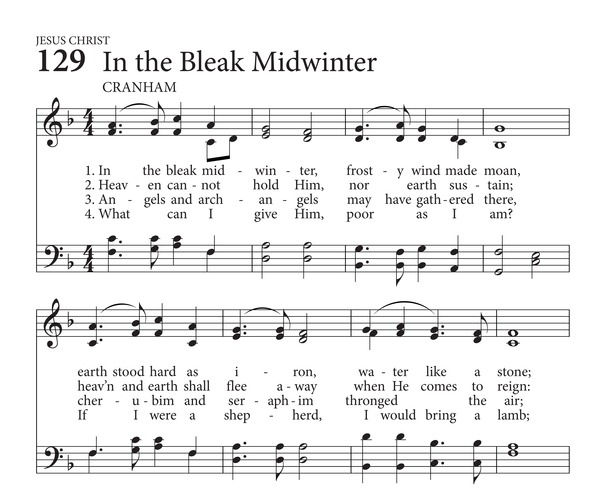In Psalms, Hymns, and Spiritual Canticles
- Fr. Scott Haynes

- Feb 13, 2022
- 3 min read
Fr. Scott A. Haynes
"Admonish one another in psalms, hymns, and spiritual canticles,
singing in grade in your hearts to God." -- (Col. III. 16.)

In the Epistle of St. Paul to the Colossians refer to charity as the
“bond of perfection.”
St. Paul knew that charity glues all the other virtues together. For whoever truly loves God and his neighbor, is also kind, merciful, humble, modest, patiently bears the weakness of his neighbor, willingly forgives offences, in a word, practices all virtues for the sake of charity. And when we have learned to conquer our evil inclinations, passions, and desires, and have placed Godly order in our hearts, then the
“peace of Christ [will] rejoice in [our] hearts.”
This peace must reign over our hearts like a queen ruling over her subjects. This peace must keep all the desires of the soul in harmony and cause us to enjoy constant peace with our neighbor, and thus serve Christ in concord, as the members of one body serve the head. The best means of preserving the peace of Christ in our hearts is surely found in the sacraments, especially in the Holy Eucharist and in Confession. But we must also open our ears and our hearts to the Word of God, in the Mass and the Divine Office, especially, as St. Paul says, by
“singing hymns, psalms, and spiritual canticles.”
St. Paul then presents for us today the importance of the singing of sacred music in church. He exhorts us to do this in the “name of Jesus,” because only then can our works have real worth in the sight of God, and be pleasing to Him, when they are performed for love of Jesus, in His honor, in accordance with His spirit and will. St. Augustine, who loved to sing the psalms in the Sacred Liturgy, used to refer to Christ our Lord as
“the most illustrious chanter of the psalms.”
And so, the custom of singing in the Church has its foundation as far back as the Old Testament, when by the arrangement of David, Solomon, and Ezechias, the psalms and other sacred canticles were sung by the priests and Levites in the temple worship. This ancient custom the Catholic Church has retained, according to the precepts of the apostles, (I. Cor. XIV. 26; Eph. V. 19.) and the example of Jesus who, after they had eaten the Pasch, intoned a hymn of praise with His apostles, (Matt XXVI. 30) that Christians on earth, like the angels and saints in heaven, (Apoc. V. 8. 9., XIV. 3.) who unceasingly sing His praises, might at certain hours of the day, at least, give praise and thanks to God. In the earliest ages of the Church, the Christians sang hymns of praise and thanksgiving during the holy Sacrifice and in the Divine Office, often continuing them throughout the whole night.
In the course of time, the Church admitted the use of the organ and of certain instruments, in accordance with the words of David, who calls to the praise of the Lord with trumpets, with timbrels, with pleasant psaltery and harps. (Ps, CL. 3, 4., LXXX. 3. 4.) The faithful should then sing with pure hearts and true devotion. And then it will be, as St. Basil says,
“a heavenly occupation, a spiritual burnt offering; it enlightens the spirit, raises it towards heaven, leads man to communion with God, makes the soul rejoice, ends idle talk, puts away laughter, reminds us of the judgment, reconciles enemies. Where the singing of songs resounds' from the contrite heart there God with the angels is present."



Comments